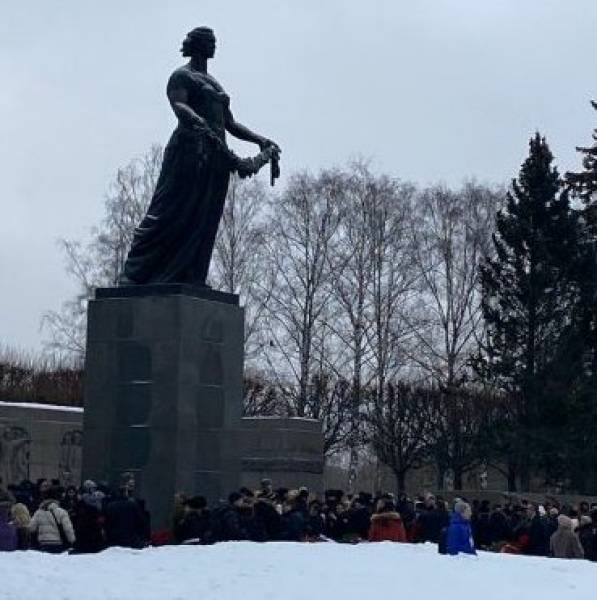
SAINT PETERSBURG, January 27th. – Authorities and people in general commemorated this Saturday the 80th anniversary of the lifting of the siege of Leningrad (now the Russian city of Saint Petersburg), a decisive step forward in the Great Patriotic War, reports PL.
A pilgrimage and the subsequent laying of floral offerings at the Piskarevskoye Memorial Cemetery, where the remaining 420,000 citizens and martyrs of this heroic deed rest, formed the main activity of the tributes to which the city government invited the ambassadors of Cuba and Bolivia of Russia, Julio Garmendía and María Luisa Ramos, respectively .
Earlier, local governor Alexander Beglov said that there were various initiatives to honor the memory of Leningraders and defenders of the city.
“We commemorate the progress and lifting of the blockade of Leningrad in a difficult time for the country,” he said, referring to the almost two-year Russian special military operation in Ukraine.
For his part, Russian President Vladimir Putin laid flowers at the Linestone monument in Nevsky Patch during his trip to St. Petersburg.
“The Nevsky patch is a bridgehead on the left bank of the Neva, which became a symbol of the endurance and courage of Soviet soldiers in the Battle of Leningrad,” the Kremlin press service recalled.

Russian President Vladimir Putin laid flowers at the Linestone monument in Nevsky Patch. Photo: PL
Historiography recognizes as the “Siege of Leningrad” the military blockade that the Nazis established against this Soviet city during the Second World War, one of the most tragic pages in the country's history.
The siege lasted a total of 872 days, from September 8, 1941 to January 27, 1944, and, according to various sources, claimed around 1.2 million lives.
The city was bombed 173 times in the nearly three years of the blockade and anti-aircraft alarms sounded in its streets 649 times.
In July 1941, Nazi troops entered the territory of the Leningrad Region. Despite the Red Army's efforts, the Germans continued to narrow the perimeter around the city and on September 2 cut the last railway line connecting the city to the rest of the country.
Less than a week later, the entire area was completely surrounded, so the only two means of communication with the outside world were air and Lake Ladoga.
Soviet troops made four unsuccessful attempts to break the blockade. Only in January 1943, when the main German forces were concentrated in Stalingrad, did they succeed in this thanks to the Iskra operation. The offensive began on the morning of January 12th.
The expected breakthrough of the siege occurred on January 18, 1943. The Soviet offensive led to the liberation of the city of Shlisselburg and a breach was created in the siege ring, restoring overland flow.
After this success, the city began to receive food and other essential supplies, although the blockade still continued. The siege was not fully lifted until January 27, 1944, and for Russians its lifting remains one of the most significant events of the Great Patriotic War.

